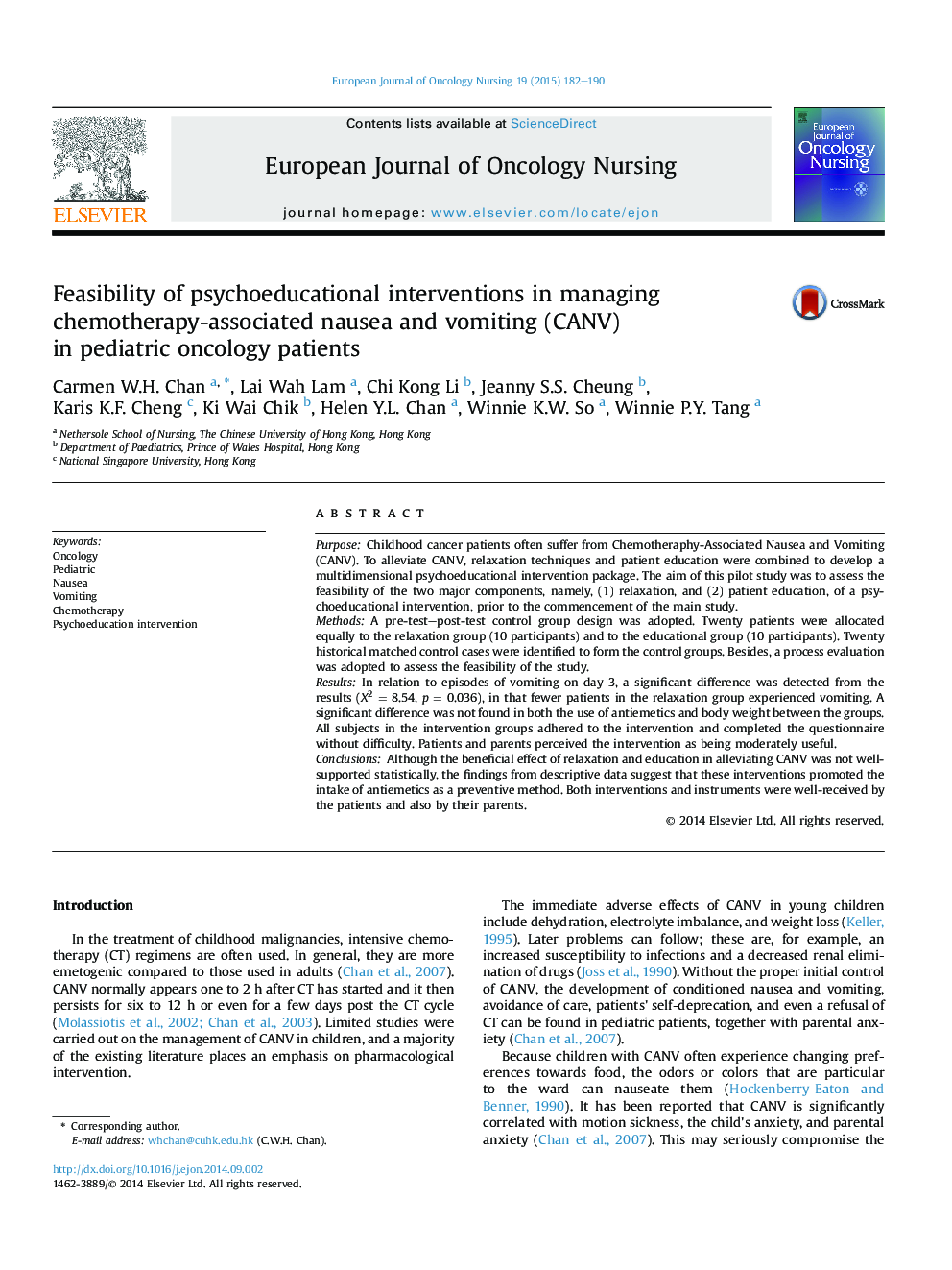| Article ID | Journal | Published Year | Pages | File Type |
|---|---|---|---|---|
| 2647574 | European Journal of Oncology Nursing | 2015 | 9 Pages |
PurposeChildhood cancer patients often suffer from Chemotheraphy-Associated Nausea and Vomiting (CANV). To alleviate CANV, relaxation techniques and patient education were combined to develop a multidimensional psychoeducational intervention package. The aim of this pilot study was to assess the feasibility of the two major components, namely, (1) relaxation, and (2) patient education, of a psychoeducational intervention, prior to the commencement of the main study.MethodsA pre-test–post-test control group design was adopted. Twenty patients were allocated equally to the relaxation group (10 participants) and to the educational group (10 participants). Twenty historical matched control cases were identified to form the control groups. Besides, a process evaluation was adopted to assess the feasibility of the study.ResultsIn relation to episodes of vomiting on day 3, a significant difference was detected from the results (X2 = 8.54, p = 0.036), in that fewer patients in the relaxation group experienced vomiting. A significant difference was not found in both the use of antiemetics and body weight between the groups. All subjects in the intervention groups adhered to the intervention and completed the questionnaire without difficulty. Patients and parents perceived the intervention as being moderately useful.ConclusionsAlthough the beneficial effect of relaxation and education in alleviating CANV was not well-supported statistically, the findings from descriptive data suggest that these interventions promoted the intake of antiemetics as a preventive method. Both interventions and instruments were well-received by the patients and also by their parents.
